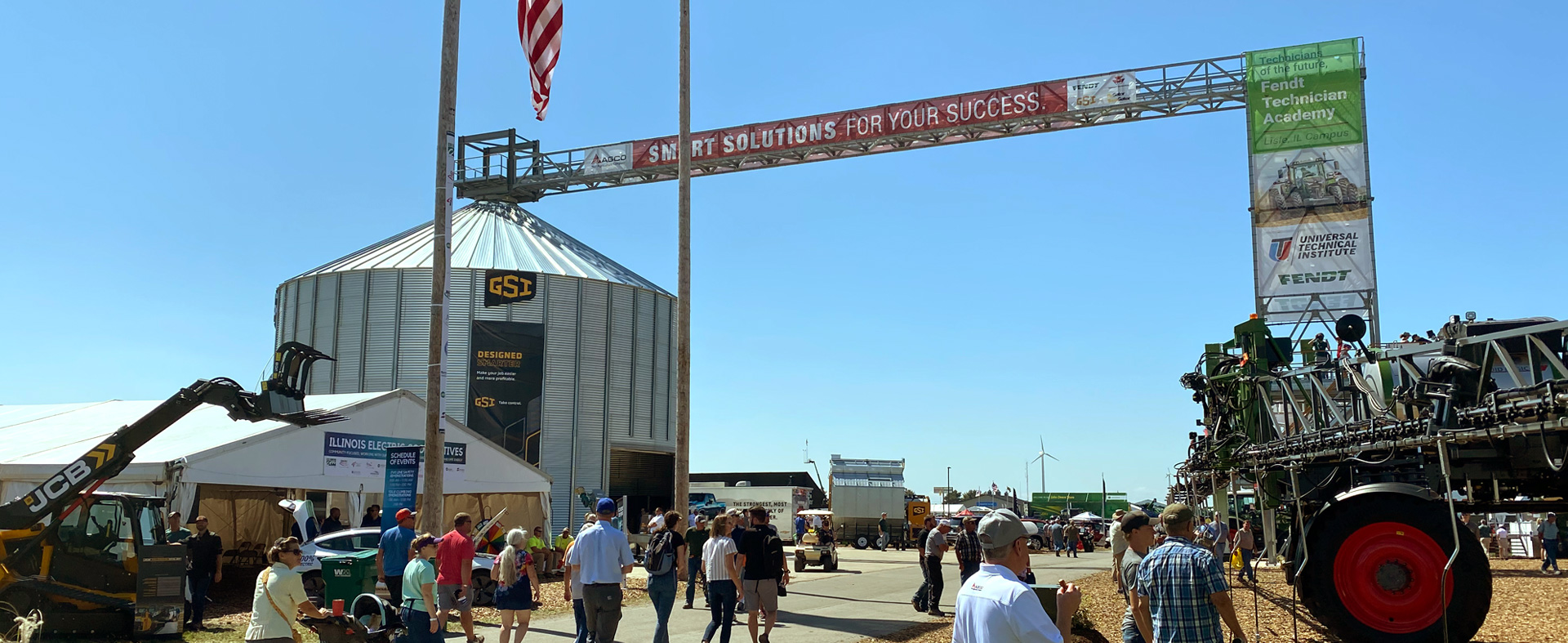We were fortunate to converse with a couple dozen growers, most from Illinois, and we asked for their opinions on hot topics in agriculture.
If you want an honest opinion, ask a farmer. If you don’t, most farmers won’t actively share what they’re thinking. As a small-town boy, I know this trait generally holds true across rural America – farmer or not.
I recently attended the Farm Progress Show in Decatur, Illinois, with a few of my DKY colleagues. We were fortunate to converse with a couple dozen growers, most from Illinois, and we asked for their opinions on hot topics in agriculture.
As we talked, the old phrase, “How’s it play in Peoria?” came to mind (even though we were 75 miles from that small city). Growers candidly expressed their opinions to our questions, and they clearly reflected on how rural America feels these days.
I couldn’t help but put on my marketing hat, so here are my top takeaways from these conversations:
1) Concerns about their farm and the industry
It’s all over the news these days, so it’s no surprise that labor is a difficult issue for farmers as well as fast-food restaurants. Today’s growers have a lot of ground to clear in not much time. It takes boots on the ground and in the equipment to get it done, and they just aren’t there.
Producers also expressed concern over the growing cost of doing business. They are grateful for a solid year of revenue, but rapidly rising input costs and shortages of parts and goods cloud the outlook for next year and beyond.
Products and services that help growers improve productivity and/or reduce input costs should get extra attention from producers in the months ahead.
2) Sustainability equals profitability
It seems a new carbon program pops up every day, and sustainability has become an overused and misused term in the growers’ eyes. These programs may be the “next big thing,” but farmers are skeptical that their farms will benefit based on a history of programs that overpromised and underdelivered. Growers are understandably cautious of collecting and providing data to large corporations based on the hope of an uncertain future return.
Sustainability to growers equates to profitability – passing along the farm to the next generation. If that can be done through new approaches to conservation, then all the better. But farmers say they’ve been on that train for decades now. Nearly every grower we spoke with was already doing some form of conservation tillage. Or cover crops. Or buffer strips. Or variable rate applications. Or something else significant.
Agribusiness marketers can help our nation’s farms by telling stories of what’s already been done to protect the soil, water and air on rural acres, and what’s in the works.
3) A digital divide
Growers have embraced technology for years, gathering data on the farm to help guide farm management decisions. But this is different from a world of digital-only relationships and transactions, which is not something they embrace.
A trusted, local face is still critically important to growers. They do appreciate how digital tools make their lives easier by allowing them to do business when they want. But when it comes to big decisions or when they face a problem, they want to talk to someone.
Most of us discovered in 2020 that we may not need to do all our business in person; but it is certainly nice to know that we have business partners to turn to when we need them.
4) Be real or don’t bother
Growers believe they know what’s best for their farm. And those outside of their trusted circle will be ignored if they don’t have something clearly beneficial to offer.
For example, dozens of new private-equity-backed companies pop up every year, purportedly to help the farmer. But growers told us that many of these businesses are based on a model of what “someone in New York City” believes is best for the farm – not necessarily what is right for the farmer.
Growers call it as they see it. If a company’s message doesn’t align with the view on the farm, then it will be immediately dismissed. As one farmer put it when describing a startup that he recently engaged, “Money talks and BS walks. That company does nothing but walk.”
Fellow marketers should take note. Farmers don’t need to be changed. They need to be heard.
5) The bottom line
In my opinion, there’s a growing divide between what urban/suburban residents believe about farming, and what’s actually happening on the farm.
Marketers can make a difference, however. We heard from growers that they want and need advocates to help them tell and share their story. But they want the story to reflect their situation – not weighted to the desires of a corporation whose primary motivation is often self-serving or solely focused on pleasing consumers.
To do so, we must seek out conversations with farmers, check our preconceived notions at the door, and listen to what they say. As we gain understanding, we can then amplify their voice through marketing to help narrow the divide and foster more conversation and clarity.
To learn more about DKY’s Agriculture practice and marketing programs, please contact us.
